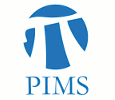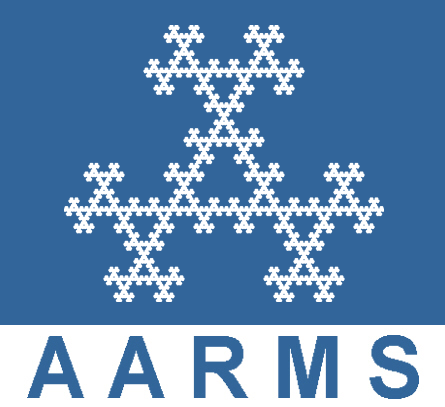Réunion d'hiver SMC 2015
Université McGill, 4 - 7 décembre 2015
Équations aux dérivées partielles stochastiques
Org: Don Dawson (Carleton) et Lea Popovic (Concordia)
[PDF]
Org: Don Dawson (Carleton) et Lea Popovic (Concordia)
[PDF]
- YURI BAKHTIN, Courant Institute
Ergodic theory of Burgers equation with random forcing [PDF]
-
I will talk about the ergodic theory of randomly forced Burgers equation (a basic nonlinear evolution PDE related to fluid dynamics and growth models) in the noncompact setting. In the inviscid case, a variational principle holds, so an essential part of the program is constructing one-sided infinite minimizers of random action and studying their properties. The corresponding results are joint with Eric Cator and Kostya Khanin for Poissonian forcing and due to myself in the kicked forcing case. I will also report on the progress for the viscous case (joint with Liying Li). Here the variational characterization is replaced by the Feynman-Kac formula, so a natural approach is to construct and study infinite-volume polymer measures.
- RALUCA BALAN, University of Ottawa
SPDEs with affine multiplicative fractional noise with index H<1/2 [PDF]
-
In this talk, we consider the stochastic wave and heat equations
with non-vanishing initial conditions, driven by a Gaussian noise which is white in
time and behaves in space like a fractional Brownian motion of index $H$, with $1/4<H<1/2$.
We assume that the diffusion coefficient is given by an affine function $\sigma(x)=ax+b$,
and the initial value functions are bounded and H\"older continuous of order $H$.
We prove the existence and uniqueness of the mild solution for both equations. We show that the solution is $L^{2}(\Omega)$-continuous and its $p$-th moments are uniformly bounded, for any $p \geq 2$. This talk is based on joint work with Maria Jolis and Llu\'{i}s Quer-Sardanyons.
- SANDRA CERRAI, University of Maryland, College Park
On the small noise limit for the 2D stochastic Navier-Stokes equation [PDF]
-
I will study the properties of the quasi potential associated with a stochastic 2D Navier-Stokes equation, both in the case the noise is white in space and time and in the case the noise is colored in space. I will also study the validity of a large deviation principle for the invariant measures.
- DAVID NUALART, The University of Kansas
Parabolic Anderson model driven by colored noise [PDF]
-
The aim of this talk is to present some recent result on the stochastic heat equation on $\mathbb{R}^d$
\[
\frac{\partial u}{\partial t}= \frac 1 2 \Delta u + \sqrt{\lambda} u \dot{W},
\]
with initial condition $u_0$, where $\lambda>0$ and the noise $\dot {W}(t,x)$ is white in time and it has an homogeneous spacial covariance. In the one-dimensional case, we allow the covariance of the noise to be rougher than the classical space-time white noise, including the case of a fractional noise with Hurst parameter $H\in (1/4,1/2)$. On the other hand, the initial condition can be a measure that integrates the function $e^{-a|x|^2}$ for all $a>0$. We show the existence of a unique mild solution using its Wiener chaos expansion and we derive Feynman-Kac formulas for the moments. We compute the Liapounov exponents and discuss intermittency properties of the solution.
- JEREMY QUASTEL, Toronto
- LUC REY-BELLET, University of Massachusetts Amherst
Information theoretic tools for the numerical analysis of stochastic systems [PDF]
- LUC REY-BELLET, University of Massachusetts Amherst
-
We analyze operator splitting schemes for Markov processes, with the parallelization of kinetic Monte-Carlo as a guiding example.
We study these schemes in particular in the long-time (steady-state) regime by using information theoretic tools to compare the original process with the approximate process generated by the numerical scheme. Combined with new information
inequalities this allows to control weak errors in the long-time regime. In addition our approach provide a-posteriori
estimates that can be tracked in straightforward manner in numerical simulations.
- BORIS ROZOVSKY, Brown





